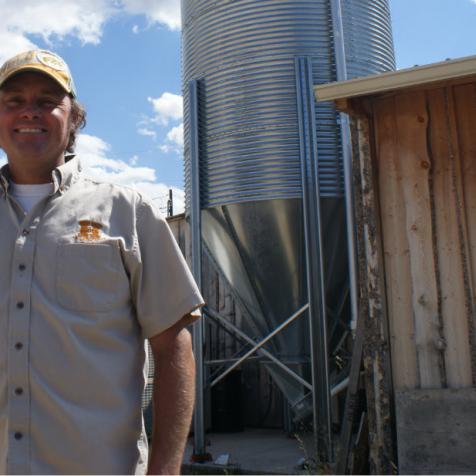
Company Details
Aubrey Hall is taking a time-tested approach with his eponymous farmhouse brewery as he anticipates dynamic growth.
Before launching his namesake brewery, Hall obtained a degree in brewing sciences from University of California, Davis, in the late 1990s. He didn't start his own brewery for more than a decade, working instead as a firefighter. "I had applied for that and been waiting quite a few years," he says.
While fighting fires in Summit County, Colorado, his interest in brewing didn't waver. "I worked for a lot of different breweries, big guys, small guys, just kind of staying current," he says. "I decided I wanted to start my own thing."

He did just that in 2011 when he launched a true farmhouse brewery on the Front Range. Situated on seven rural acres southeast of Parker, Hall Brewing embraces a handcrafted, do-it-yourself attitude. It started with the construction of the brewery itself. "My dad and I hand-cut every board and every timber, everything but the trusses and the plywood are pretty much handmade," Hall says.
That same spirit comes through in his beers. Hall has four year-round beers as well as seasonal releases. The top seller is Juicy Peach Blonde; Hall says he's emulating Dry Dock Brewing's strategy with Apricot Blonde by making an accessible, entry-level beer that appeals to beer and wine drinkers alike. "We're pretty proud of that," he says.

Hall is working with brewing industry vet Adam Kimball. "Adam is my head of sales and marketing," Hall says. "He makes it all happen."
"I'm a firm believer you just put the beer where you want it," Kimball says. "We're not trying to be anything more than just a craft-centric brewery."
While the Juicy Peach Blonde is leading the way, the Golden Lager has proved to be a good bridge to beer drinkers who generally shy away from craft beers. "We're getting the Bud Light, the Coors Light, and the Miller drinkers drinking it," Hall says. "It's neat to convert some of those old-timers."

In addition to their own beers, Hall Brewing also produces private-label beers for Sanctuary Golf Course and the Brown Palace Hotel. For the Brown Palace, Hall uses all Colorado ingredients. "We use the Brown Palace's water," Hall says. "It comes out of a 720-foot well, it's the number-two well permit in the state. It's still pumping great water for the Brown Palace. We use Colorado malt. The hops are coming out of Canon City."
Future plans include launching a second brand of more experimental beers from Kimball. "Adam's a really good homebrewer and he helps me with some recipe formulation here," Hall says.
But Kimball remains focused on Hall Brewing for the time being. "We're still trying to dial in production, figure out brewhouse efficiencies," Kimball says. "We're still kind of young in those moving parts. We've got to get Hall up and running efficiently before we add any more faces to the lineup."

Favorite beers: Hall and Kimball both prefer Hall Brewing's Golden Lager. When it comes to drinking someone else's brews, Hall looks to Fort Collins. "There's a lot of good beers out there," he says. "Probably my go-to is Odell 90 Schilling." Kimball is a fan of WeldWerks Brewing in Greeley. "WeldWerks Juicy Bits," he says. "It's a New England-inspired IPA. It's delicious."
Challenges: Rising prices for ingredients. "The hops prices are what's killing us right now," Halls says. In addition to raw materials cost is the heavy competition. "The industry is saturated," says Kimball. "There's a lot of competition out there, particularly in the Denver metro area, but as an industry in general, just fighting for shelf space."
Opportunities: Growth. After brewing 780 barrels in 2015, Hall forecasts more than 1,000 barrels in 2016, then 3,500 in 2017. As production increases, Hall Brewing will expand distribution, Kimball says. "Right now, we have a footprint that we self-distribute. It's made up of the Parker Road corridor, from Castle Rock as far north as central Aurora. Phase two is going to be the Front Range and everything from Wyoming to Colorado Springs."

Direct sourcing represents another opportunity. "We are trying to go more local and direct," Hall says. "I'd rather go to hop growers direct and not go through third parties."
Needs: A production boost. "We're in this space where we're trying to balance distribution footprint with production," says Kimball. "The worst thing you can do is out-of-stock a customer."
